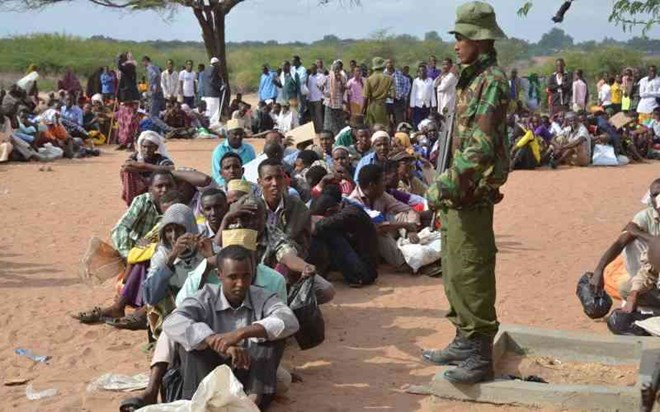
By Paul Ogemba
Saturday February 18, 2023

Thousands of refugees could become Kenyan citizens if a petition filed by a civil society group to compel the government to recognise them succeeds. Kituo Cha Sheria, through lawyer Linet Opiyo, filed the petition at the High Court claiming that the government’s failure to accord refugees the right to seek citizenship and permanent residence is illegal, discriminatory and a violation of their rights.
“We want the court to declare that refugee status constitutes lawful residence in the country and that they qualify to apply for citizenship. The government has illegally denied them citizenship and restricted them to the country’s borders without regard to their rights,” said Opiyo.
Ms Opiyo argued that refugees are being mistreated and discriminated by State agencies unlike other foreigners who visit the country and are granted the right to seek for citizenship and employment. According to the lobby group, the United Nations High Commission for Refugees (UNHCR) estimated that as at October 2022, the country hosts 568,325 refugees and asylum seekers, with majority being confined at the Dadaab refugee camp in Garissa and Kakuma refugee camp in Turkana.The lobby said most of the refugees are asylum seekers from South Sudan, Somalia, Uganda, Rwanda, Democratic Republic of Congo, Burundi, Sudan, Eritrea and Ethiopia.
“The refugees have been deliberately confined away from the country’s urban centres so that they cannot even look for employment to sustain themselves. This amounts to inhuman treatment and a violation of constitutional provision on equal treatment,” said Opiyo.
She added that the government has adopted an administratively opaque process in the acquisition of work permits which violate the refugees’ right to fair administrative action to the extent that they are unable to apply for any employment opportunity.
The lobby submitted that Section 13 of the Kenya Citizenship and Immigration Act, which does not recognise refugee status as lawful residence, violates the Constitution which provides for equal treatment of foreigners despite their status.
Ms Opiyo stated that the provision is unlawful as it fails to recognise refugee status as a lawful residence, despite refugee status being a permitted entry into a country as provided by international treaties which form part of Kenyan laws.
“The thrust of the regulation is refugees no longer enjoy liberty and freedom of free movement. They are confined in designated refugee camps, where their movements are monitored and controlled,” said Opiyo.
The lobby wants the court to find that the failure by the government to accord convention refugees the right to seek and be considered for conferment of citizenship for permanent residence is a violation of the Constitution and international laws.
It added that the government’s position that refugees should only be repatriated to their countries will not control the problem since the instability in neighbouring countries has not been contained.
Ms Opiyo submitted that due to the government’s failure to recognise refugees, some of them have resorted to seeking for jobs in informal sectors which leads to harassment and arrest by security officers.